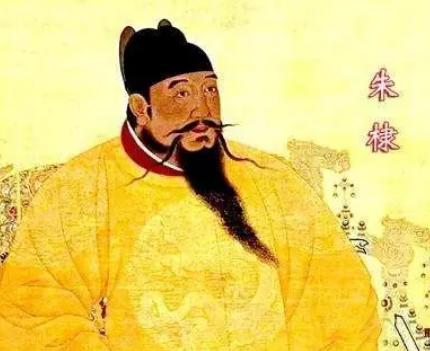In the long history, many great rulers encountered various health issues in their later life. Kublai Khan, the founding emperor of the Yuan Dynasty, was no exception. According to historical records, Kublai Khan suffered from gout in his later years, which had a significant impact on his life and reign. Today, we will explore why Kublai Khan developed gout in his later years.

First, we need to understand what gout is. Gout is a disease caused by abnormal metabolism of uric acid, typically manifesting as joint pain, swelling, and redness. In severe cases, it can affect the patient's ability to move. In modern medicine, gout is associated with dietary habits, genetic factors, and kidney function. So, why did Kublai Khan develop this disease in his later years?
Kublai Khan, as an imperial ruler, his dietary habits may be an important factor leading to gout. According to historical records, Kublai Khan preferred lavish meals, especially meat and alcohol. These foods contain high levels of purine, which is converted into uric acid in the body, thus increasing the risk of gout. In addition, as age increases, the body's metabolic ability declines, and the excretion of uric acid decreases, which may also lead to the occurrence of gout.
Besides dietary habits, Kublai Khan's gout in his later years may also be related to his lifestyle. As an emperor, his life was extremely luxurious and lacked sufficient physical activity, which may have led to weight gain and deteriorating health conditions. At the same time, long-term political pressure and mental strain may have accelerated his physical decline, making him vulnerable to gout and other geriatric diseases.
From a modern medical perspective, Kublai Khan's gout in his later years may also be related to genetic factors. Although there is limited information about Kublai Khan's family medical history, considering that gout is related to genetics to a certain extent, we cannot exclude this possibility. If gout was prevalent in Kublai Khan's family, his risk of developing the disease would increase.
Unfortunately, due to the vast time span, we cannot conduct a detailed medical analysis of Kublai Khan's condition. However, based on existing historical records and medical knowledge, we can speculate that his dietary habits, lifestyle, and possible genetic factors may have contributed to his gout in later years.
In conclusion, Kublai Khan's gout in his later years is a complex medical issue involving diet, lifestyle, genetics, and other aspects. Although we cannot precisely know the details of his condition, through the analysis of historical records and the application of modern medical knowledge, we can make reasonable assumptions about the causes of his gout. This also reminds us that even great figures in history cannot escape health issues. Therefore, we should pay more attention to our own health, adopt a reasonable lifestyle, and prevent diseases from occurring.
Disclaimer: The above content is sourced from the internet and the copyright belongs to the original author. If there is any infringement of your original copyright, please inform us and we will delete the relevant content as soon as possible.





























